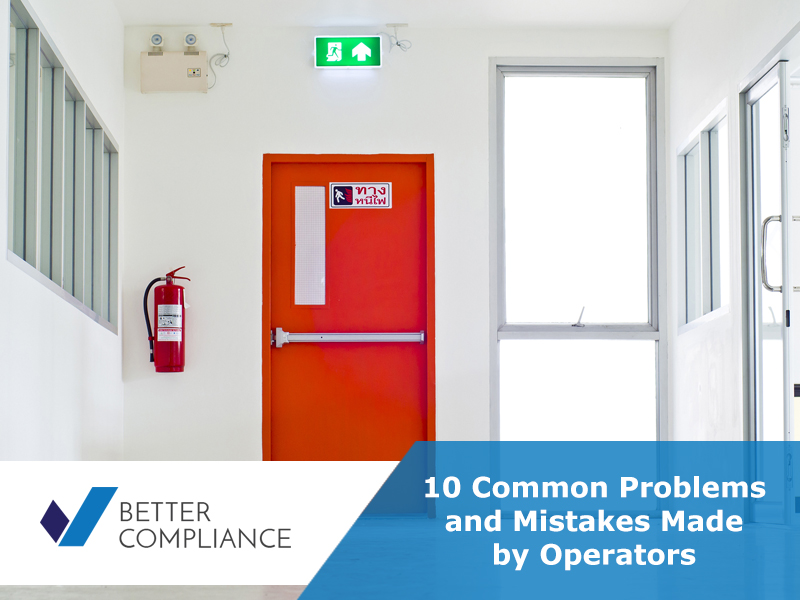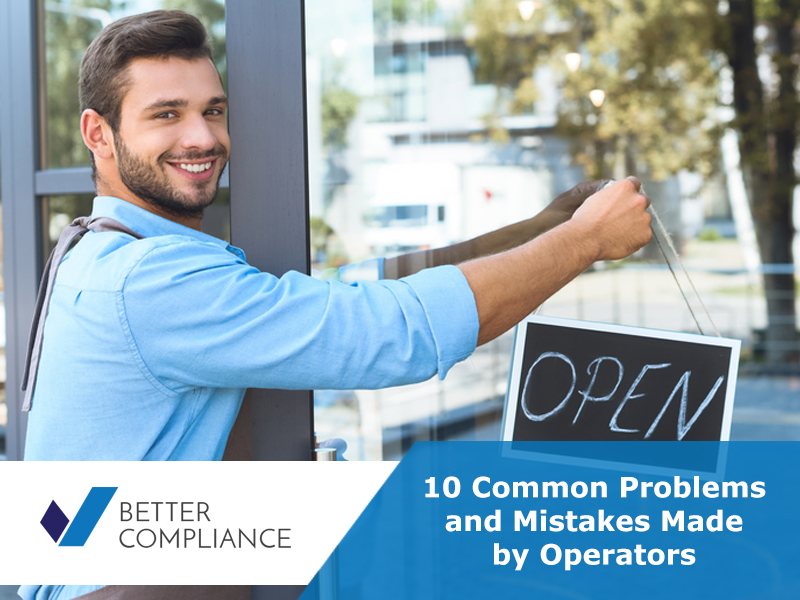As premises prepare to re-open it is important to make sure all your compliance measures are up to date in place. We have created a list below of ten of the most common problems found in licensed premises, and mistakes often made by operators. The list was compiled by canvassing licensing officers and working in partnership with the various licensing enforcement officers and teams.

Not knowing the difference between a Premises Licence and Premises Licence summary
Licences are issued by way of two documents: the premises licence (part A) and the licence summary (part B). The summary is the part that must be displayed prominently on the premises. The licence is a longer version of the summary and contains all the conditions; it does need to be displayed but must be produced if requested by an authorised officer.
Staff working at premises being unaware licence conditions
Staff given responsibility for running licensed premises often report that they have never been made aware of the licence conditions. Ensure staff are informed of all relevant conditions and ideally ask them to sign confirmation that they have read and understood the conditions. If you are not always at the premise you should delegate responsibility for producing the licence to authorised officers, and display a notice naming the responsible persons.
Not having adequate arrangements in place to operate and maintain your CCTV
Many premises will have a licence condition requiring the installation and maintenance of CCTV. You should have sufficient people trained to operate the system; ideally staff should be asked to “sign off” once they have been trained. The system should also be maintained by way of routine recorded checks confirming correct date and time, “burn facilities” are working and the amount of recorded being stored is adequate (e.g. min. 31 days). A log should also be kept of any faults and remedial work.
Inadequate due diligence record keeping
It is important that you keep a record of your due diligence. It is evidence that you are a responsible operator and demonstrates you are proactive in managing your premises and promoting the Four Licensing objectives. Records should be clear and legible.
Failure to properly report and deal with incidents
You should have written policies in place and be able to evidence that staff have been trained to know when to call the police, when to preserve possible crime scenes, detention of suspects, how to write meaningful reports and collate evidence.
Maintaining a Premises Licence
There is an annual fee payable and if it is not paid when due, your licence can be suspended. Make a note of your fee due date and make sure it is paid in plenty of time.
You have a legal duty to inform your local licence authority of any change of name or address to the premises licence holder or the DPS. It is also good practice to inform them of any change to your contact details, such as email and telephone number, so you can be easily contacted.
Obstructed means of escape
Means of escape are often used as storage areas, putting customers and employees at risk. All dedicated exit routes must be kept clear of obstructions and appropriately maintained (doors not locked and easily opened, free of trip and slip hazards and obstructions, adequately lit, sign posted, etc.)
Failure to have a written fire risk assessment
All licensed premises, regardless of the number of employees, are required to have a written risk assessment. Furthermore, you should ensure that all safety equipment is adequately maintained. Your fire risk assessment should also state the maximum numbers of people that can be safely evacuated in the event of an emergency.
Poor management of outside areas and dispersal
It is a mistake to believe that once guests have left your premises they are ‘no longer my problem’. It is important that queues, smoking areas, and dispersal are managed correctly to ensure there is no disorder or nuisance.
Lack of guest welfare
You, and your staff, should know how to identify and deal with any person considered vulnerable and, as such, are at increased risk of becoming a victim of a crime or accident. You should have a written policy detailing the measures in place to ensure the welfare of guests in your premises and how they get home safely.

